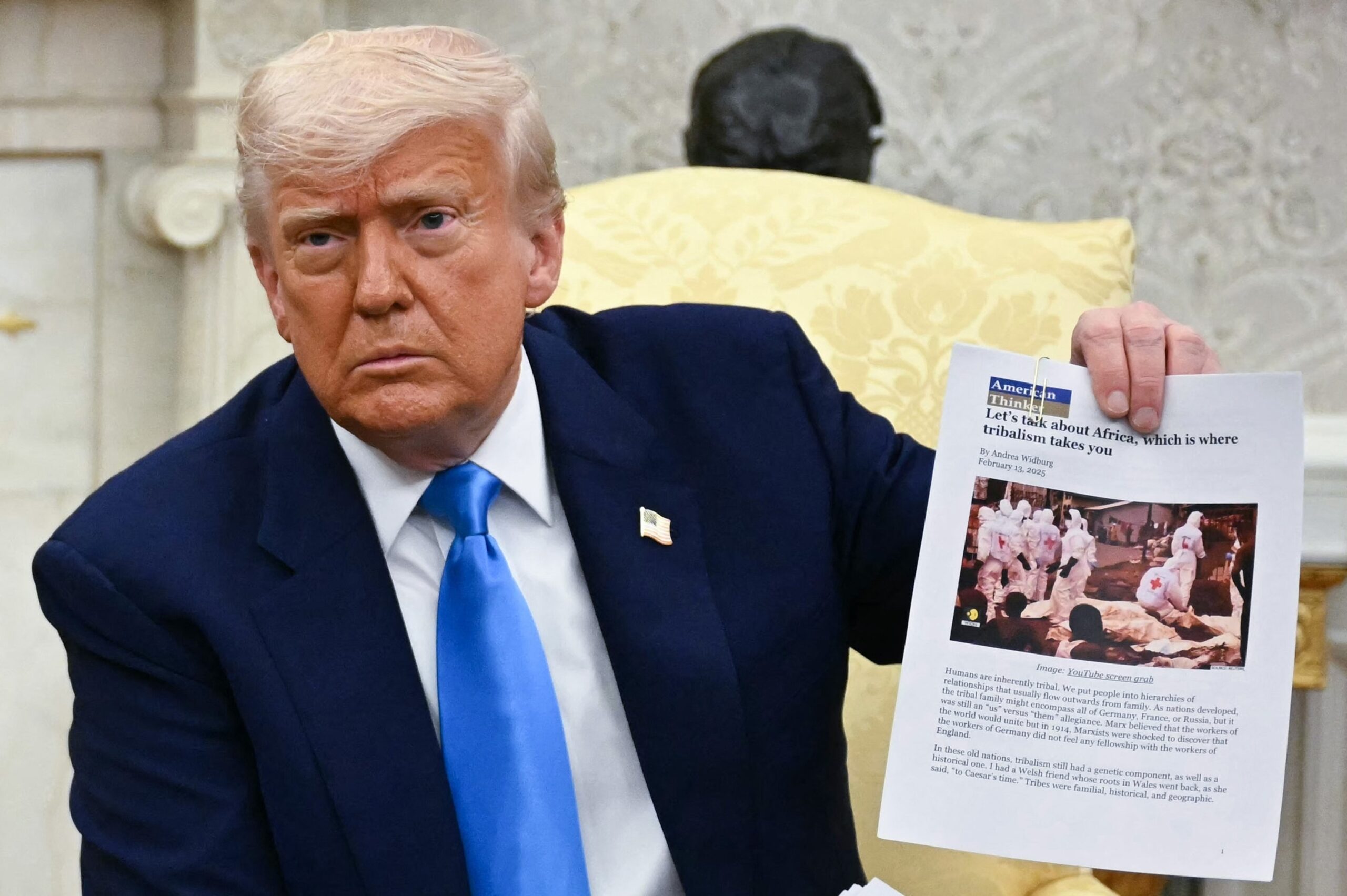In an unprecedented Oval Office exchange, President Donald Trump clashed with his South African counterpart, Cyril Ramaphosa, over false claims of “genocide” against white Afrikaner farmers. The tense encounter, which took place on a Wednesday afternoon, was marked by Trump’s persistence in pushing unsubstantiated allegations, despite the lack of evidence and the vehement denials from the South African delegation.
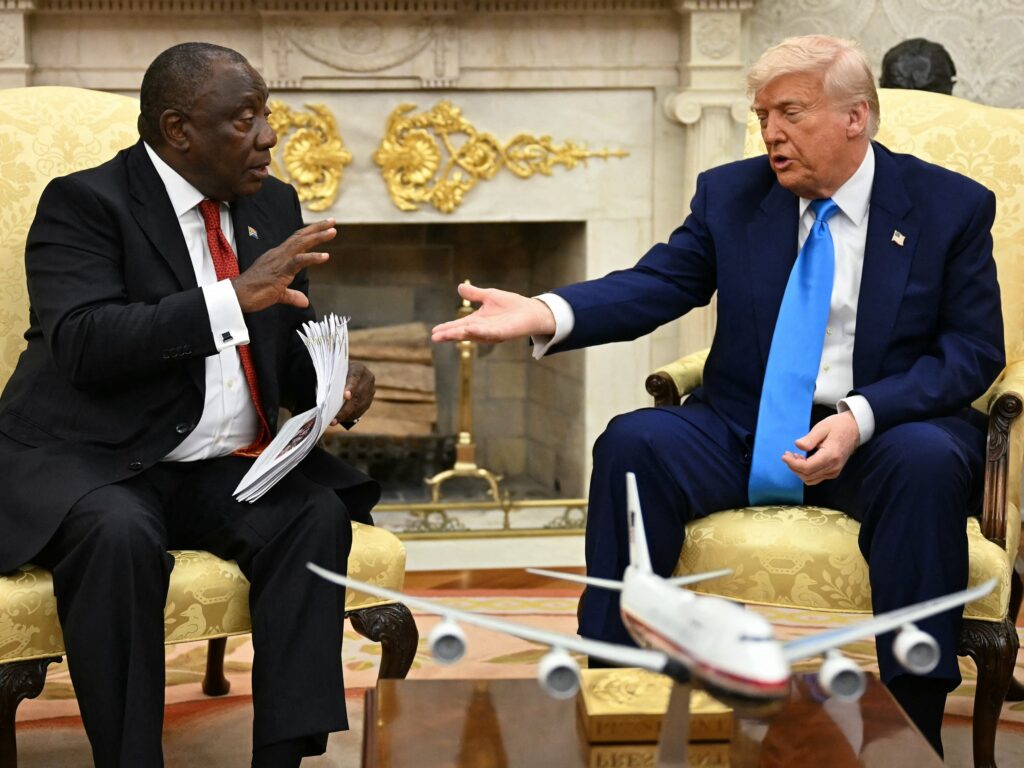
Ramaphosa, accompanied by his team, appeared taken aback when Trump dimmed the lights to showcase videos he claimed supported his assertions. The President held up news articles about violent attacks against white Afrikaner farmers, stating that these were just a few examples of the “death, death, death” faced by this community. Ramaphosa countered by emphasizing that the speakers and their views featured in the clips were part of extremist fringe political groups, not government policy.
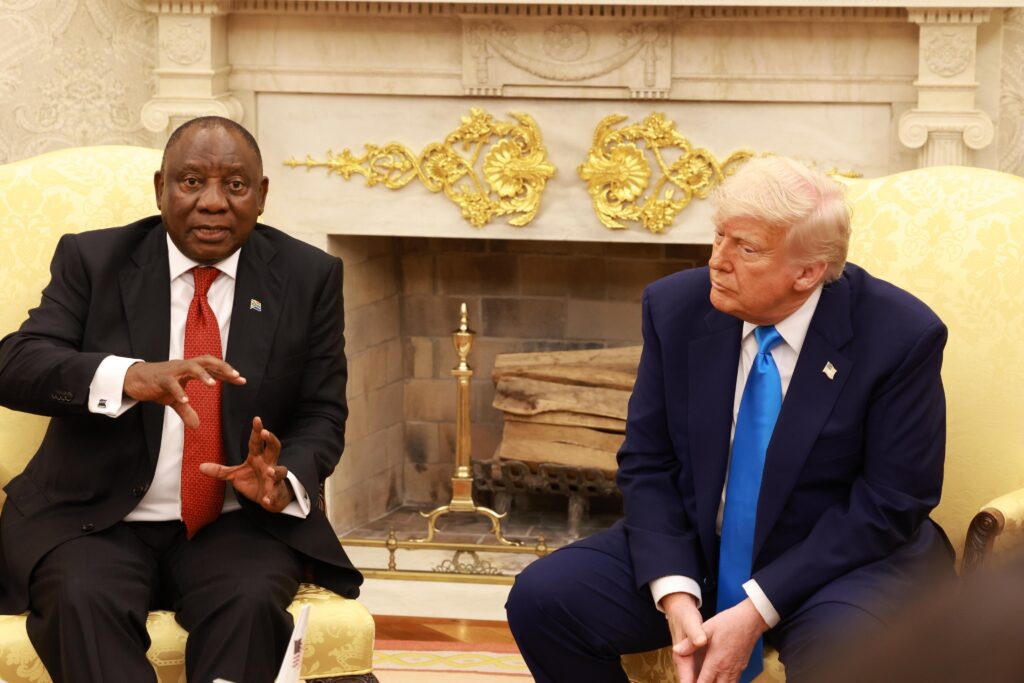
The South African leader also highlighted the fact that criminal activity, including violent attacks on individuals regardless of race, was a widespread issue in his country, rather than a targeted campaign against white Afrikaners. Ramaphosa aptly pointed out that if there indeed was an “Afrikaner farmer genocide,” it would be unlikely for key figures, such as the Minister of Agriculture and himself, to still be present.

In a later statement, Ramaphosa categorically denied the existence of genocide in South Africa, attributing much of the violence to economic struggles and poverty. He emphasized that investment from the United States and a more positive disposition towards his country were essential for addressing these challenges.
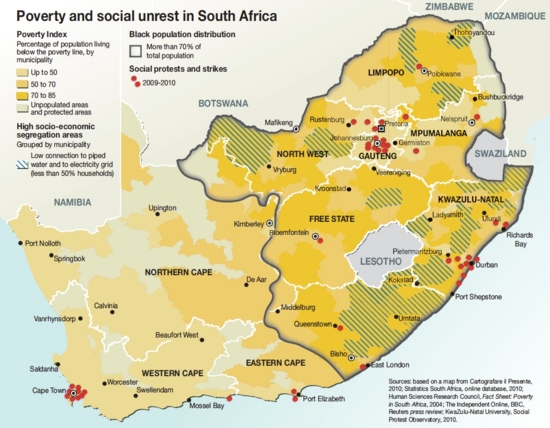
Throughout the encounter, Trump continued to focus on the supposed mistreatment of white Afrikaners, despite Ramaphosa’s efforts to steer the conversation towards trade and economic cooperation. When pressed on what he wanted the South African government to do, Trump conceded that he “didn’t know,” leaving many wondering about the true purpose behind his executive order on the matter.
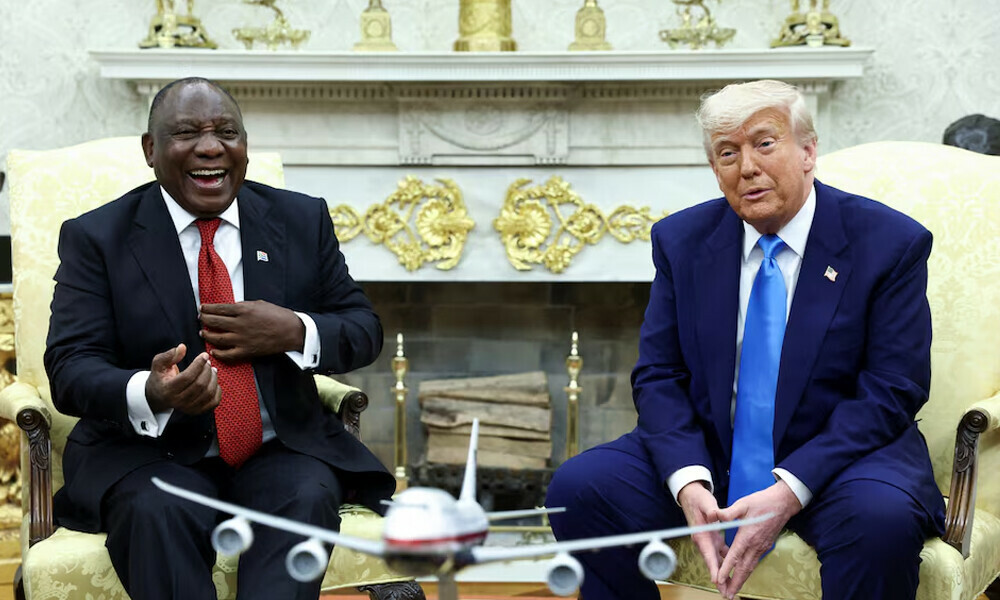
The order, titled “Addressing Egregious Actions of the Republic of South Africa,” claims that the country’s government has passed a law allowing for the seizure of ethnic minority Afrikaners’ agricultural property without compensation. However, experts have argued that this law is comparable to similar legislation worldwide regarding eminent domain, and critics have pointed out that Trump’s administration prioritizes Afrikaner refugees while restricting immigration from other countries.

In conclusion, the Oval Office confrontation between Trump and Ramaphosa serves as a stark reminder of the dangers of misinformation and its potential consequences on international relations. As the world watches, it is essential for leaders to prioritize accurate information and respectful dialogue in their interactions, rather than allowing personal biases or misguided beliefs to dictate policy decisions.
Sourced from https://abcnews.go.com/
Additional Details:
Review Trump’s Executive Order
